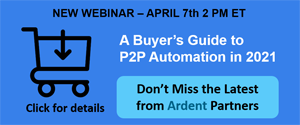The first time I learned about nonfungible tokens (NFTs) occurred while perusing Twitter last summer. Seeing that Topps, perhaps the most-revered name in collectable trading cards, was going “full blockchain” a little over a year ago sparked an interesting dive down a rabbit hole of blockchain, the evolution of e-commerce, and, perhaps, yet another link to the Future of Work movement. Will blockchain finally take its rightful place within the pantheon of Future of Work-era innovation, or will it be limited to the crypto-fueled world of NFTs?
NFTs, Explained…Quickly
Nonfungible tokens (NFTs) are, in essence, a digital record that confers ownership of a specific asset. This record does not bestow “rights” but rather ownership of the asset, details of which are permanently recorded in a public database.
The NFT is stored in a shared global database that runs on, yes, you guessed it…blockchain!
Decentralization is the Future of Work Key
The biggest claim to fame (besides cryptocurrency, of course) for blockchain’s impact within the greater world of business was always its decentralized means of permanently recording information and data in an unalterable way. Back in 2016, which now seems like forever ago (thank you, pandemic!), I wrote about blockchain’s near-limitless potential in transforming how business was done. Innovation, of course, is the pumping heart of the Future of Work movement; blockchain, then, represented a way for businesses to not only transform the way they record information (such as contracts, IP, SOWs, and impactful data), but could also help to streamline the human touchpoints inherent in finance, accounting, payment management, and contract management to permanently eliminate errors and inconsistencies. In the continuing crossover between personal and business worlds, “digital wallets” or “e-wallets” leverage blockchain as a storage device for funds, gift cards, personal information, and more, furthering the growth and impact of blockchain technology.
Even with a pandemic raging across the globe, blockchain still had moves to make in 2020. “Decentralized finance” was a big hit for the blockchain movement as more and more consumers and business leaders alike bought into peer-to-peer transactions that eschewed traditional measures (such as banks and standard payment outlets), and, digital wallets became a trusted means for consumers that wanted to shun cash as a safer payment option while shopping.
“Decentralized commerce,” also known as dCommerce or DeFi, has a simple goal in mind that traverses beyond decentralized banking or finance: untether commerce from monopolistic giants in retail and other major markets. Blockchain-driven dCommerce networks, such as the Worldwide Asset eXchange (WAX), which specializes in the creation and sales of NFTs and similar assets, in addition to the already-proven advantages of digital wallets, could be harbingers of the future of blockchain in other business realms…even in how talent is engaged in the years to come.
“Open Talent,” Frictionless Talent Acquisition, and the Next Great Era of Workforce Management
The concept of digital wallets could point to how talent is engaged and sourced in the very near future. John Healy, Vice President at the World Employment Confederation, believes that this technological progression could very well be the Future of Work movement’s most crucial pathway into connecting people with projects and work.
“Digital wallets are emerging as an essential asset to our personal privacy and safety, and as governments recognize the need to leverage such a tool as a way to have trusted access to verify vaccinations, the next question they are asking is, “What else should be in that digital wallet?” Healy said. “Information regarding your identity, eligibility to work, your education, employment history, certifications and licenses, any assessments, awards or achievements…all part of the solutions that are actively being deployed using blockchain technology. 100%, this is part of how we will reduce friction in the ways that people connect with work – speeding up the time from application to paycheck, and interview to productivity, while also helping improve wellness for individuals and communities.”
If NFTs are the hot tech attribute du jour and bring more attention to digital wallets and the decentralization of commerce and finance through the advent of blockchain, we could certainly soon live in a world that untethers traditional talent networks and places more emphasis on the unalterable permanent scale of information enabled by blockchain. The freeform sharing of ideas, projects, information, intelligence, and yes, even talent, could lead to a relatively frictionless “open talent movement” as a Future of Work undercurrent.
Vaccine records (a topic worth digging deeper into), portfolios of work, certifications, education, and assessments are all critical measures of the true impact and alignment of talent with work and business projects. As decentralization and blockchain continue to transform the world of work, as non-traditional/non-employee talent continues to grow in both size and prominence, and as business leaders continue to rely on talent clouds and talent communities for agile workforce needs, it’s not too difficult to think of an environment in which a peer-to-peer, frictionless, and “open” culture permeates into the next great era of workforce management.
RELATED RESEARCH
Ardent Partners Launches Definitive Digital Staffing Platforms Report
What’s the Next Big Thing in Contingent Workforce Management?
The Link Between Mental Health and the Future of Work
Why Diversity and Inclusion Should Be Core Future of Work Tenets
[Editor’s Note: Ardent Partners has two exciting webinars coming up. We hope you can join us for one or both. Click below to learn more and to register!]
Tagged in: Blockchain, Christopher Dwyer, Complex Categories, Future of Work, People, Technology












